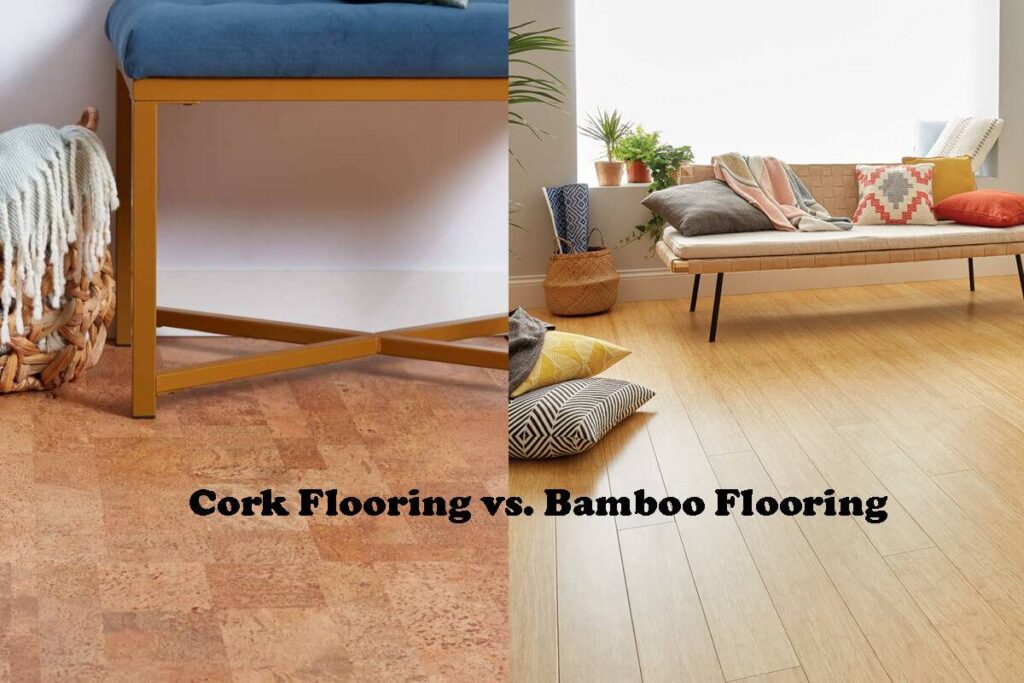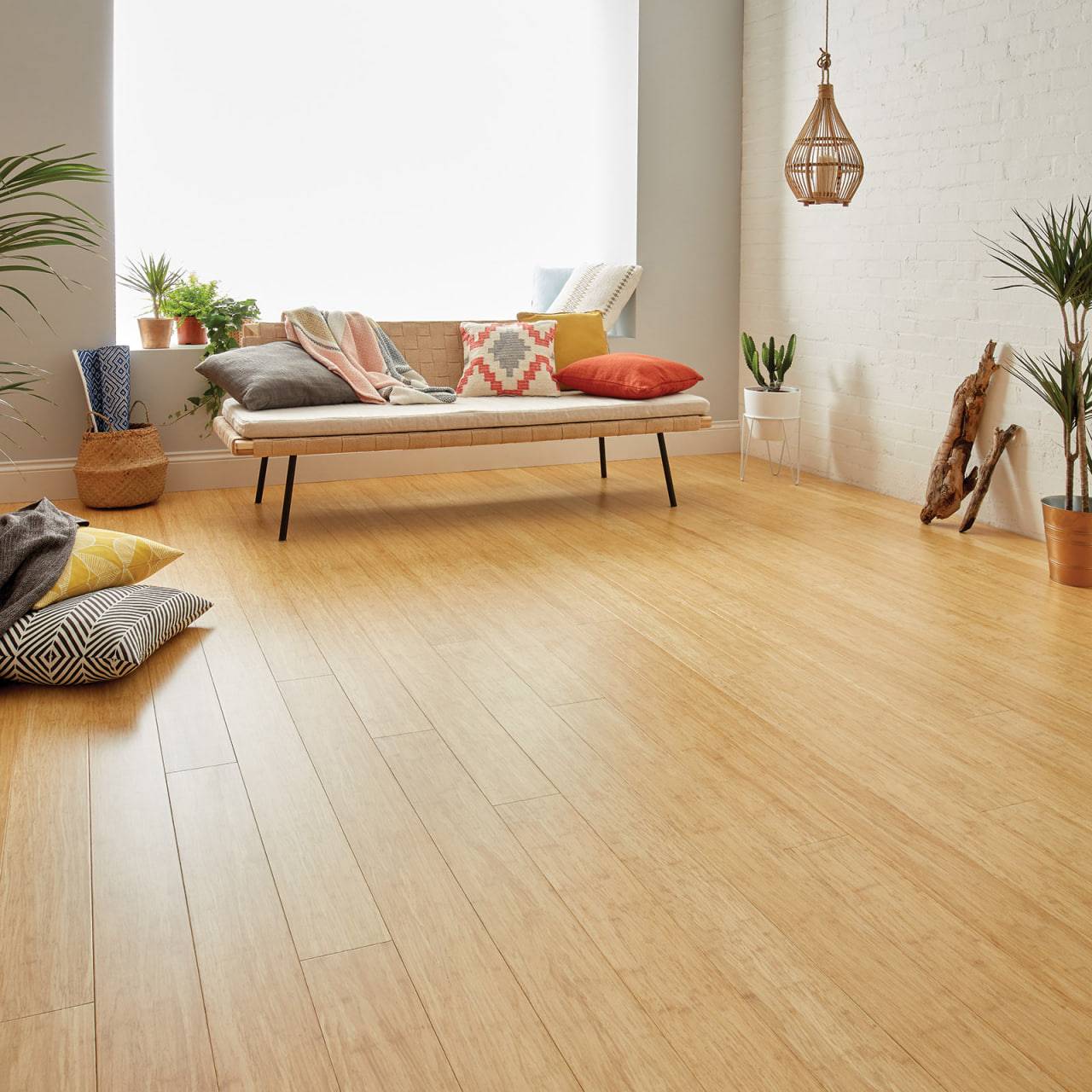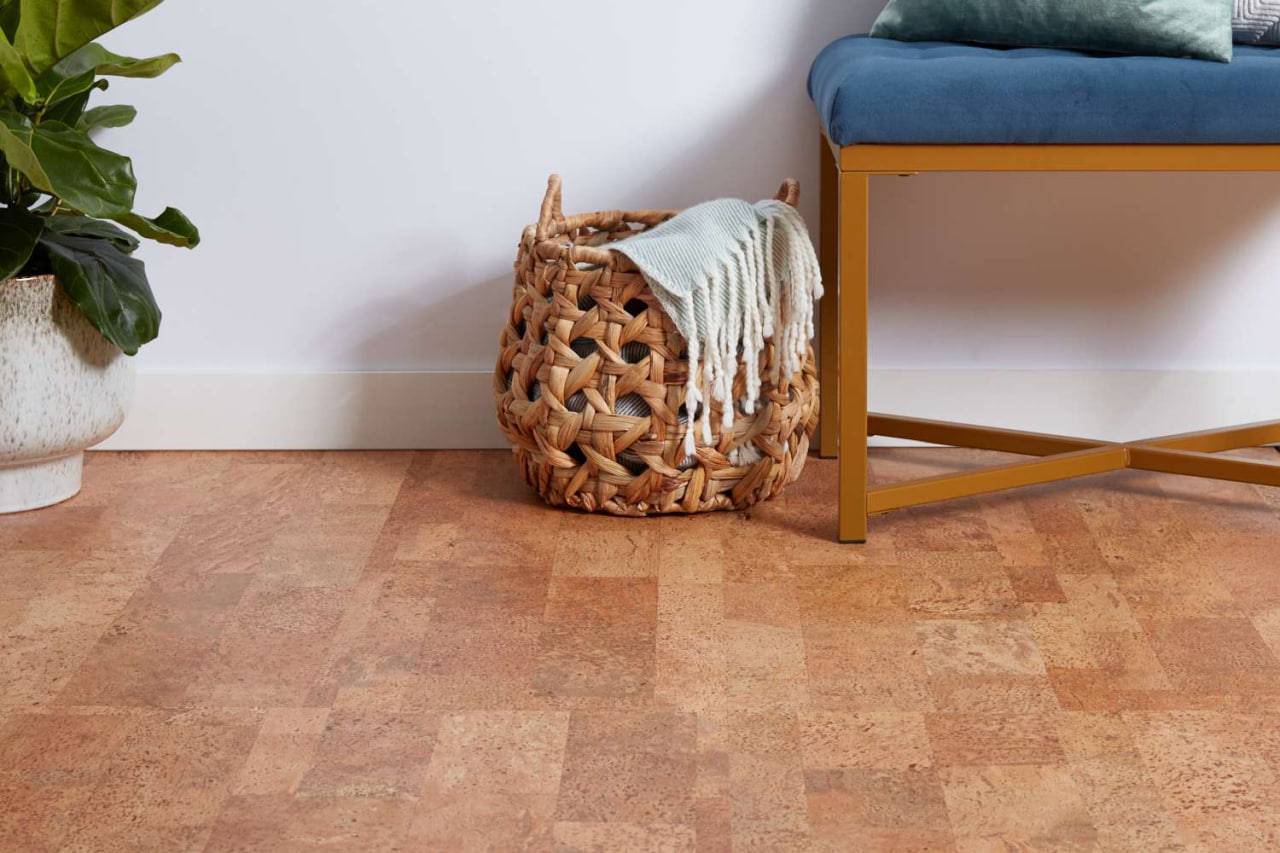When it comes to choosing sustainable and stylish flooring options, cork and bamboo often rise to the top. Both boast impressive green credentials, unique aesthetics, and undeniable comfort underfoot. But deciding between these natural wonders can be tricky. Fear not, eco-conscious homeowner! This guide delves into the heart of cork versus bamboo flooring, dissecting their strengths, weaknesses, and unique characteristics to help you make the perfect choice for your home.
So, buckle up and prepare to explore the world of sustainable flooring, where comfort meets style and responsibility reigns supreme!
Bamboo Flooring: A Sustainable Choice with Pros and Cons
Bamboo flooring has stormed the eco-friendly stage, captivating homeowners with its unique blend of sustainability, style, and durability. But before you hop on the bamboo bandwagon, let’s take a balanced look at its pros and cons to ensure it fits your needs perfectly.
Pros:
- Sustainability: Bamboo is a rapidly renewable resource, reaching maturity in just 5-7 years, making it a great choice for the eco-conscious.
- Durability: High-quality bamboo flooring can be as strong as some hardwoods, resisting wear and tear for decades with proper care.
- Scratch Resistance: Bamboo generally fares well against scratches, particularly strand-woven varieties.
- Easy Maintenance: Regular sweeping and occasional mopping with mild soap keep bamboo floors looking clean and fresh.
- Refinishable: Like hardwood, some bamboo floors can be refinished, extending their lifespan.
- Modern Aesthetic: Bamboo’s natural grain and clean lines lend a contemporary look to any space.
- Hypoallergenic: Bamboo’s natural properties resist dust mites and allergens, making it ideal for sensitive individuals.
- Pest Resistant: Bamboo’s inherent composition deters pests like termites and insects.
Cons:
- Susceptible to Moisture: Bamboo absorbs moisture more readily than traditional hardwoods, making it unsuitable for bathrooms or laundry rooms.
- Prone to Scratches: While generally scratch-resistant, dark carbonized bamboo can be more susceptible to damage.
- Cost: High-quality bamboo flooring can be comparable in price to hardwoods, although its sustainability might justify the cost for some.
- Not Always Eco-Friendly: Choosing sustainably sourced and manufactured bamboo is crucial to ensure its true environmental benefit.
- Limited Refinishing: Depending on thickness, some bamboo floors cannot be refinished as many times as traditional hardwoods.
- Uniform Grain Pattern: Bamboo offers a distinct, linear grain pattern, which might not suit all design preferences.
By carefully considering these pros and cons in the context of your needs and lifestyle, you can confidently decide if bamboo flooring is the perfect eco-conscious addition to your home.
Cork Flooring: Comfort and Sustainability with Trade-offs
Cork flooring, harvested from the bark of the cork oak tree, offers a unique blend of comfort, sustainability, and natural beauty. But, like bamboo, it also comes with its own set of advantages and disadvantages. Let’s delve into the world of cork flooring to help you decide if it’s the right fit for your home.
Pros:
- Unmatched Comfort: Cork’s naturally springy texture provides exceptional comfort underfoot, making it ideal for kitchens, playrooms, and anywhere frequent standing is required.
- Excellent Insulation: Cork boasts superior insulating properties, keeping your home warm in winter and cool in summer, potentially reducing energy bills.
- Sound Absorption: Cork effectively absorbs sound, creating a quieter and more peaceful environment.
- Hypoallergenic and Antimicrobial: Cork’s natural properties resist dust mites, mold, and mildew, making it ideal for allergy sufferers and asthma patients.
- Sustainable Choice: Cork is harvested from the bark of the cork oak tree, which regenerates itself, making it a sustainable and eco-friendly flooring option.
- Unique Style: Cork’s warm, natural tones and subtle variations in texture create a distinctive and stylish look.
- Easy Maintenance: Regular sweeping and occasional damp mopping keep cork floors looking clean and fresh.
Cons:
- Susceptible to Damage: Though water-resistant, not waterproof, cork can dent, stain, or warp if exposed to excessive moisture.
- Soft Material: Cork can scratch and dent more easily than some harder flooring options like hardwood or bamboo.
- Requires Special Care: Sealing and re-sealing at regular intervals are necessary to maintain cork’s water resistance and durability.
- Limited Color Options: Compared to other flooring materials, cork comes in a narrower range of natural colors and patterns.
- Cost: Depending on thickness and quality, cork flooring can be expensive, although its unique properties might justify the cost for some.
Cork vs. Bamboo Flooring: Choosing the Sustainable Champion for Your Home
Both cork and bamboo flooring have earned their eco-friendly badges, but their strengths and weaknesses cater to different needs and preferences. Here’s a head-to-head comparison to help you choose the champion for your home:
Comfort:
- Cork: Takes the crown with its springy, cushioned feel, ideal for high-traffic areas and sensitive joints.
- Bamboo: Provides a firm, hardwood-like comfort level, good for everyday use but less forgiving than cork.
Durability:
- Bamboo: Generally more scratch-resistant and harder than cork, offering good resistance to wear and tear.
- Cork: Prone to dents and scratches, requiring extra care and potentially needing repairs in high-traffic areas.
Moisture Resistance:
- Bamboo: More susceptible to moisture damage than cork, making it unsuitable for bathrooms or laundry rooms.
- Cork: Water-resistant but not waterproof, requiring careful maintenance and prompt cleanup of spills.
Style:
- Bamboo: Offers a sleek, modern look with a clean grain pattern, complementing contemporary designs.
- Cork: Features a warm, natural aesthetic with unique texture variations, ideal for rustic or organic spaces.
Sustainability:
- Both: Eco-friendly choices; cork is naturally regenerating bark, and bamboo is a fast-growing grass.
- Consider: Choose sustainably sourced and manufactured products for both to maximize their environmental impact.
Maintenance:
- Bamboo: Needs regular sweeping and occasional mopping, easier to maintain than cork.
- Cork: Requires special care – sealing, re-sealing, and immediate water cleanup – for optimal life span.
Cost:
- Both: Can be comparable in price to some hardwoods, depending on quality and thickness.
Additional Factors:
- Hypoallergenic: Both cork and bamboo are naturally hypoallergenic, suitable for allergy sufferers.
- Sound Absorption: Cork excels in soundproofing, while bamboo provides moderate noise reduction.
The Verdict:
The “better” option ultimately depends on your priorities. If comfort and soundproofing are paramount, cork shines. If you value durability, a modern aesthetic, and easier maintenance, bamboo might be your match. Consider your lifestyle, budget, and desired look to make the perfect eco-conscious choice for your home!
Cork vs. Bamboo Flooring: A Comprehensive Comparison
| Feature | Cork | Bamboo |
| Comfort | Excellent, springy, cushions joints | Good, firm, hardwood-like |
| Durability | Moderate, prone to dents & scratches | Good, harder than cork, scratch-resistant |
| Moisture Resistance | Water-resistant (not waterproof), needs quick cleanup | More susceptible to moisture damage, avoid wet areas |
| Style | Warm, natural, unique texture variations | Sleek, modern, clean grain pattern |
| Sustainability | Very sustainable, bark regenerates | Highly sustainable, fast-growing grass |
| Maintenance | Requires sealing, re-sealing, immediate water cleanup | Easier, regular sweeping & occasional mopping |
| Cost | Can be expensive depending on quality | Can be expensive depending on quality |
| Hypoallergenic | Yes, ideal for allergy sufferers | Yes, ideal for allergy sufferers |
| Sound Absorption | Excellent, reduces noise effectively | Moderate, reduces some noise |
| Scratch Resistance | Moderate, susceptible to dents & scratches | Good, more resistant than cork |
| Variety of Colors & Patterns | Limited natural tones & textures | Wider range of colors & styles available |
| Suitability for High-Traffic Areas | Use caution, prone to damage | Good for everyday use, but not as forgiving as cork |
Remember: This table provides a general comparison, and specific characteristics can vary depending on product quality and type.
Conclusion: Choosing Your Sustainable Champion
Both cork and bamboo flooring offer compelling arguments for the eco-conscious homeowner. Ultimately, the “better” choice boils down to your specific needs and priorities.
- For the ultimate comfort seekers: Cork reigns supreme with its unparalleled cushioned feel, ideal for high-traffic areas and sensitive joints.
- For those prioritizing durability and a modern aesthetic: Bamboo takes the lead, providing good resistance to wear and tear and a sleek, contemporary look.
- If moisture resistance is crucial: Bamboo might be your match, but caution is needed even with it. Cork might work if extra care and immediate cleanup are guaranteed.
- Budget and ease of maintenance come into play: Bamboo requires less upkeep compared to cork’s sealing and re-sealing needs. However, both can be comparable in price depending on quality.
- Remember, sustainability is a shared value: Choose products with verified eco-friendly sourcing and manufacturing practices to maximize the positive impact.
FAQs: Cork vs. Bamboo Flooring
Is cork or bamboo flooring more waterproof?
Neither are truly waterproof, but cork offers better water resistance. Bamboo can swell, warp, or crack with significant moisture exposure. Both require prompt cleanup of spills and proper maintenance.
Which flooring is more durable?
Bamboo generally wins in durability, being harder and more resistant to scratches and dents. However, proper care can extend the lifespan of both materials.
Is cork or bamboo flooring better for pets?
Bamboo might be the better choice for pets due to its scratch resistance. However, consider your pet’s activity level and claw sharpness. Both materials can still show wear from pets.
Are cork and bamboo good for allergies?
Yes! Both are naturally hypoallergenic and resist dust mites, mold, and mildew, making them ideal for allergy sufferers and asthma patients.
Which flooring is easier to install?
Both cork and bamboo often come in click-lock styles, making installation relatively easy, even for DIY projects.
Are there any environmental concerns with these materials?
Choose ethically sourced and manufactured products for both cork and bamboo. Look for certifications like FSC (Forest Stewardship Council) for responsible harvesting and production practices.
Which flooring is quieter?
Cork wins hands down with its superior sound absorption properties, thanks to its air-filled structure. Bamboo offers moderate noise reduction, making it suitable for most areas.
Does either material require special cleaning?
Cork needs sealing and re-sealing at regular intervals to maintain its water resistance. Both materials benefit from regular sweeping and occasional mopping with gentle cleaners.
Can I refinish cork or bamboo flooring?
Some bamboo varieties can be refinished, depending on thickness. Cork typically cannot be refinished, but its natural beauty usually lasts well with proper care.
Which flooring is best for me?
There’s no one-size-fits-all answer! Consider your priorities like comfort, durability, moisture resistance, budget, and style. This guide and the provided table should help you make an informed decision for your specific needs and preferences.



